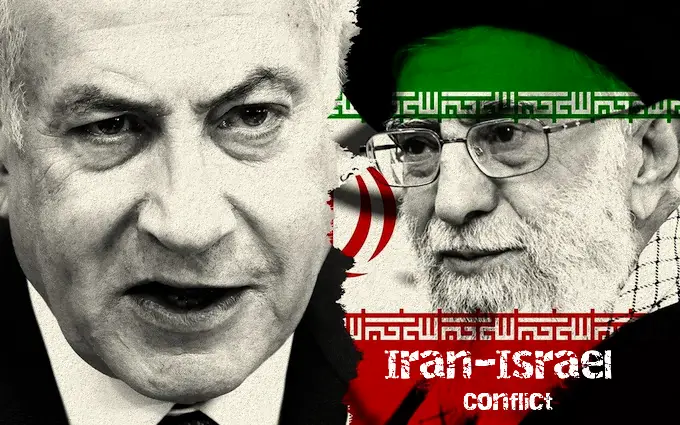In the world of international relations, certain conflicts often simmer beneath the surface, hidden from the spotlight of mainstream media. One such conflict that has been brewing in the shadows is the ongoing tension between Iran and Israel. While headlines may occasionally flare up with reports of airstrikes or covert operations, the true depth and complexity of this shadow war remain largely obscured from public view.
Understanding the Roots of the Iran-Israel Conflict
To truly comprehend the dynamics at play, it’s essential to delve into the historical context and geopolitical motivations driving both Iran and Israel. The roots of their animosity trace back decades, fueled by ideological differences, regional power struggles, different religions and conflicting security interests.
Iran, a predominantly Shia-Muslim nation, sees itself as a champion of anti-imperialism and resistance against Western influence in the Middle East. Its support for militant groups like Hezbollah in Lebanon and Hamas in Gaza has positioned it as a formidable adversary to Israel’s security objectives.
On the other hand, Israel views Iran as an existential threat due to its nuclear ambitions, support for anti-Israel proxies, and calls for the destruction of the Jewish state by Iranian leaders. Israel’s military strikes against Iranian targets in Syria and its alleged covert operations inside Iran reflect its determination to counter what it perceives as an imminent danger.
Recent Escalations and Covert Operations
In recent years, the conflict between Iran and Israel has intensified, with both sides engaging in a series of covert operations aimed at undermining each other’s interests. From cyberattacks and sabotage to targeted assassinations and proxy warfare, the methods employed in this shadow war are as clandestine as they are sophisticated.
One notable incident was the assassination of Mohsen Fakhrizadeh, Iran’s top nuclear scientist, in November 2020. While no one officially claimed responsibility, suspicion fell on Israel, which has a history of targeting Iranian scientists involved in its nuclear program.
Similarly, Iran has been accused of orchestrating drone attacks and cyber assaults against Israeli assets, including the Mercer Street tanker incident in July 2021, which resulted in the deaths of two crew members and heightened tensions in the region.
The Stakes and Implications
The ramifications of this shadow war extend far beyond the borders of Iran and Israel, with the potential to destabilize the entire Middle East and disrupt global energy markets. As both sides escalate their covert activities, the risk of miscalculation and unintended escalation looms large, raising concerns about the prospect of open conflict.
Moreover, the involvement of other regional actors, such as Saudi Arabia and the United Arab Emirates, adds another layer of complexity to an already volatile situation. Their alignment with either Iran or Israel further complicates efforts to de-escalate tensions and find a sustainable resolution to the conflict.
Escalating Tensions: Nuclear Ambitions and Regional Power Plays
At the heart of the Iran-Israel conflict lies the issue of Iran’s nuclear program. Iran’s pursuit of nuclear capabilities, ostensibly for peaceful purposes, has long been a source of concern for the international community, particularly for Israel, which views a nuclear-armed Iran as an existential threat.
Despite the 2015 Joint Comprehensive Plan of Action (JCPOA), commonly known as the Iran nuclear deal, aimed at curbing Iran’s nuclear activities in exchange for sanctions relief, tensions have continued to simmer. The withdrawal of the United States from the agreement in 2018, followed by Iran’s gradual abandonment of its commitments, has further exacerbated the situation.
Israel, with its own undeclared nuclear arsenal, has consistently advocated for a tough stance against Iran, including the use of military force if necessary to prevent it from acquiring nuclear weapons. Prime Minister Benjamin Netanyahu’s frequent warnings about the dangers of a nuclear Iran have underscored Israel’s determination to safeguard its security at any cost.
Covert Operations: A Game of Shadows
As for the covert operations, both Iran and Israel have honed their skills, employing a range of tactics to achieve their strategic objectives while maintaining plausible deniability. Cyber warfare, in particular, has emerged as a key battleground, with both sides launching sophisticated attacks against each other’s infrastructure and networks.
Iran’s Islamic Revolutionary Guard Corps (IRGC) has been credited with developing advanced cyber capabilities, as demonstrated by cyberattacks targeting Israeli businesses and government institutions. These attacks, often carried out through proxy groups or hackers sympathetic to Iran’s cause, have sought to disrupt Israel’s economy and undermine its national security.
In response, Israel’s intelligence agencies, notably Mossad, have reportedly conducted covert operations inside Iran, including sabotage of key facilities and targeted killings of Iranian operatives. The assassination of Iranian nuclear scientists and the sabotage of centrifuges at Iran’s Natanz nuclear facility are believed to be part of Israel’s broader strategy to thwart Iran’s nuclear ambitions.
Regional Implications: A Balancing Act
The Iran-Israel conflict has far-reaching implications for the broader Middle East region, where geopolitical fault lines intersect and competing interests collide. Iran’s support for proxy militias across the region, from Hezbollah in Lebanon to Houthi rebels in Yemen, has fueled sectarian tensions and exacerbated existing conflicts.
Meanwhile, Israel’s close ties with Sunni-Arab states, driven by shared concerns about Iran’s regional influence, have reshaped the geopolitical landscape of the Middle East. The normalization of relations between Israel and countries like the United Arab Emirates and Bahrain, facilitated by the Trump administration’s Abraham Accords, has further isolated Iran and bolstered Israel’s strategic position.
However, the specter of a direct military confrontation between Iran and Israel remains a constant source of concern, with the potential to plunge the region into chaos. The recent escalation in hostilities, including tit-for-tat attacks and provocations, underscores the fragility of the status quo and the urgent need for diplomatic engagement to defuse tensions.
Shedding Light on the Shadows
To prevent a catastrophic outcome, concerted efforts are needed to address the underlying grievances and security concerns driving the conflict. Diplomatic channels must be kept open to facilitate dialogue and de-escalation, while regional stakeholders must refrain from actions that could further inflame tensions.
The Iran-Israel conflict represents a multifaceted challenge that defies easy solutions. As the two adversaries continue to engage in a shadow war characterized by covert operations and proxy conflicts, the risk of unintended escalation looms large.
Ultimately, the path to peace in the Middle East requires a willingness to confront the shadows of the past and chart a course towards a more stable and secure future for all parties involved. While the headlines may capture the occasional flare-up of violence, the true extent of this conflict remains hidden from public view.
As observers, it’s imperative to look beyond the surface and recognize the deeper geopolitical currents driving these hostilities. Only by shedding light on the shadows can we hope to understand the complexities of this enduring conflict and work towards a peaceful resolution that serves the interests of all parties involved.
Sources and References:
- “Iran-Israel tensions rise as Mossad is accused of attack on nuclear facility” – The Guardian
- “Israel’s Covert War With Iran Is Escalating” – Foreign Policy
- “The shadow war between Israel and Iran takes center stage” – Brookings Institution
- “The Mossad and Israel’s Shadow War With Iran” – Middle East Institute
- “Iran and Israel: A History of Acrimony” – Council on Foreign Relations
- “The shadow war between Israel and Iran: Threats, cyber-attacks and nuclear diplomacy” – European Council on Foreign Relations
- “Understanding the Iranian-Israeli Conflict” – Atlantic Council




